Benefits of Vidang, dosage, side effects, and how to use?
What is Vidang? Explore the therapeutic wonders of Vidang in Ayurveda, a medicinal benefit of Vidang are deeply rooted in traditional …
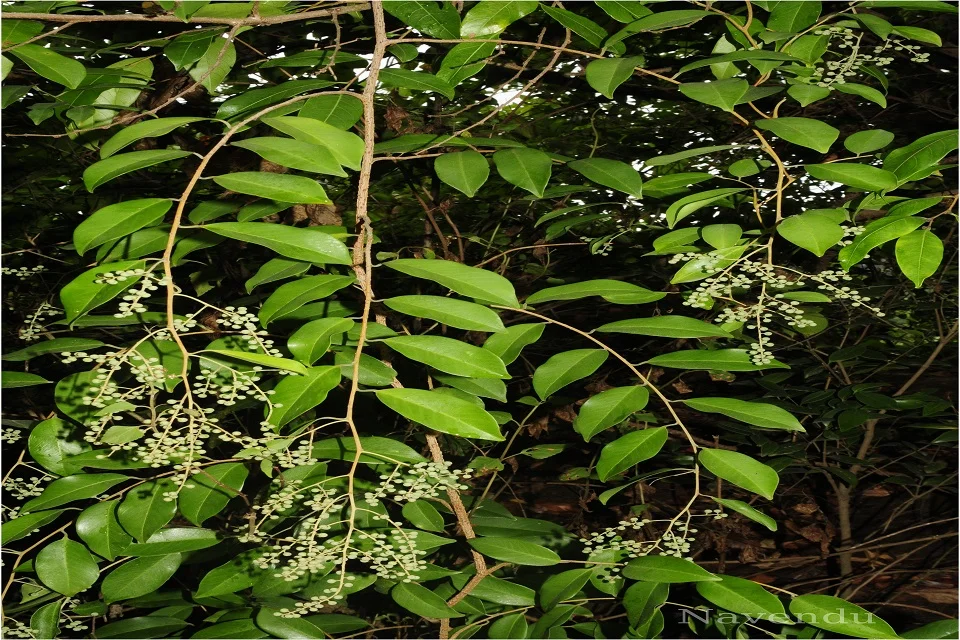
What is Vidang?
Explore the therapeutic wonders of Vidang in Ayurveda, a medicinal benefit of Vidang are deeply rooted in traditional practices. Vidang, known scientifically as Embelia ribes, is a versatile herb with a rich history in holistic healing. This article delves into its botanical characteristics, shedding light on its long, slender branches and coriaceous leaves. Discover the profound benefits of Vidang in Ayurvedic medicine, from its role in digestive health to its potential Antifungal effect. Join us on a journey through the Ayurvedic lens to unravel the secrets and benefits of Vidang, unlocking nature’s remedies for a balanced and harmonious life.
Vidang in Ayurveda
Acharya Pänini mentioned Vidanga in his works (Pa.Ga.2/ 4/31 & Pa.U.1/121). Charaka delineated Vidanga as the best among the Kṛmighna dravyas (C.S.Su.25). Sushruta quoted it for Krmi, Kuştha, Prameha, Siroroga etc (S.S.Su.45). He also explained that Vidanga acts as Rasayana if administered along with Yasti Churna (S.S.Ci.27).
What is Morphology of Embelia ribes?
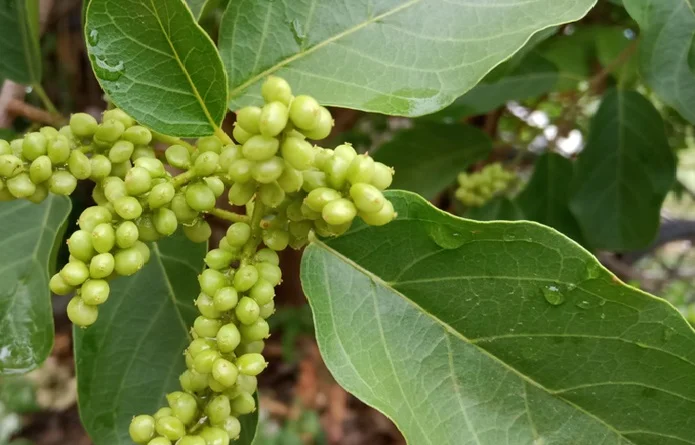
Latin name– Embelia ribes Burm. F. (Fam. Myrsinaceae)
Embelia ribes plant is a large scandent shrub with long, slender branches, featuring bark adorned with lenticles. Its leaves, measuring 5-9 x 2-3.8 cm, are coriaceous, elliptic, or elliptic-lanceolate, and possess a shortly obtuse acuminate tip. The entire leaf surface is glabrous, marked with scattered minute reddish sunkan glands. The base is either rounded or acute. The small, greenish-yellow flowers are pentamerous, numerous, and arranged in panicled racemes at the terminal. The fruit is globose, reaching 3-4 mm in diameter, smooth, succulent, and turns black when ripe. When dried, it resembles a peppercorn and is tipped with the persistent style. This plant is distributed throughout India.
Type of Vidang
At present Embelia tsjeriam-cottom (R.et.S.) A.Dc (E. robusta C.B. clarke) is being supplied as Vidaña at most places in India. P.V. Sharmaji reported that Myrsine africana Linn. is being adulterated for Viḍanga
Synonyms
Jantughna, Krimighna, Vella, Krimihara, Krimiripu, Chitratandula
Classical Categorization
Charak:Krimighn, Kusthaghna, Triptighna
Sushruta:Sursadi, Pippalyadi
Vaghbhatta:Surasadi, Pippalyadi
Other/Regional Language Names
- English:False Black Pepper
- Gujarati:Vavding, Vavading, Vayavadang
- Hindi:Vayavidanga, Bhabhiranga, Baberang
- Kannada:Vayuvilanga, Vayuvidanga
- Kashmiri:Babading
- Malayalam:Vizhalari, Vizalari
- Marathi:Vavading, Vavding
- Oriya:Bidanga, Vidanga
- Punjabi:Babrung, Vavaring
- Tamil:Vayuvilangam, Vayuvidangam
- Telugu:Vayuvidangalu
- Urdu:Baobarang, Babrang
- Assamese:Vidang
Constituents
Benzoquinones, alkaloid(Christembine), tannin and essential oil
Rasa Panchak
- Rasa:Katu, Tikta
- Guna:Ruksha, Laghu, Tikshna
- Virya:Ushna
- Vipaka:Katu
- Karma:Kriminashana, Dipana, Anulomana, Vatakaphahara
References in Ayurvedic texts
…….विडंग कृमिघ्नानाम् ।
(च० सू० 25 / 47 )
पुंसि क्लीबे विडङ्गः स्यात्कृमिघ्नो जन्तुनाशनः ।
तण्डुलश्च तथा वेल्लजमोघा चित्रतण्डुलः ॥
विडङ्ग कटु तीक्ष्णोष्णं रूक्षं वह्निकरं लघु ।
शूलाध्मानोदरश्लेष्मकृमिवातविबन्धनुत् ॥
(भा० प्र०, हरीतक्यादि वर्ग 111-112)
रूक्षोष्णं कटुकं पाके लघु वातकफापहम् ।
ईषत्तिक्तं विषान् हन्ति विडङ्ग कृमिनाशनम् ॥
(ध० नि०, शतपुष्पादि वर्ग; 12)
What are Benefits of Vidang?
- Krimiroga
- Shula
- Vibandhhara
- Adhmana
- Udarroga
- Agnimandya
What is the use of Vidang in texts?
- Kamala- Vidanga along with Pippali is used as Nasya & Anjana (G.N.)
- Ardhavabhedaka- Nasya with Viḍanga and Krishna Tila is useful (V.S.)
- Visa roga- Root paste of Vidanga is taken with rice- water (G.N.)
- Krmija Hydroga- Vidanga and Kustha are to be given with cow’s urine (V.M.).
How much is Dose?
5-10 g of the drug in powder form
What are the Useful Part
Phala (Fruit)
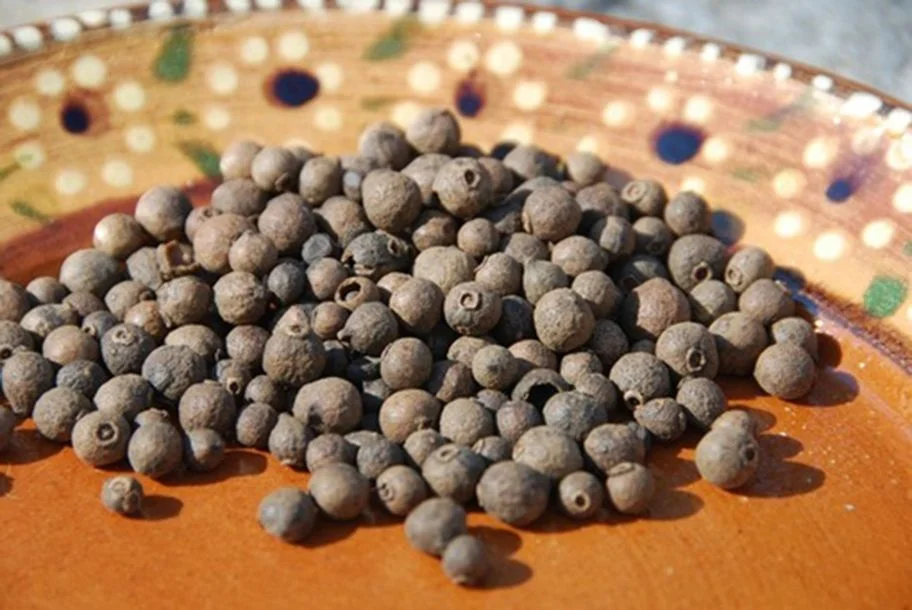
What are the side effects of Vidang?
- In the earlier texts Vidanga is mainly promoted as an antimicrobial as well as anthelmintic (Krmighna). However, later texts have emphasized its role as an antifertility agent. CCRAS and Govt. Res. Dept. of Ayurveda, Hyderabad has tried it along with Pippali and Tankana for oral contraception
- People dealing with infertility or trying to conceive or Pregnant women should refrain from using this herb because of its contraceptive effects
- May reduce testosterone levels in men.
- There are reports about the nephrotoxicity of E. ribes. This may be the reason for indicating that Vidanga may be used after one year but not in a fresh state.
- Hyperacidity
- Side effects are of taking the drug in high doses, under the guidance of qualified vaidya, or in appropriate doses it is safe to consume.
Additional information
List of formulations
- Vidanarishta
- Vidanga lauha
- Vidanga taila
- Vidangadi churna
- Trimadasava
Morphology -Gulma
Research
- Krimighna action of vidanga
- The aqueous extract of berries showed antifertility activity in rats and also anti-oestrogenic activity (J. Res. Ind. Med. 1971, 6,107).
- Clinical studies were conducted with the alcoholic and aqueous extracts of berries, on 40 children infected by ascarides. The alcoholic extract was found very effective in 80% of the cases, while aqueous extract cured 55% of cases, rendering stools free from the ova (Guru & Mishra, 1966).
Conclusion
In conclusion, the article has unveiled the myriad benefits of Vidang (Embelia ribes) in the realm of Ayurveda. From its role in supporting digestive health to contributing to overall well-being, Vidang emerges as a versatile and valuable herbal remedy. The plant’s rich history and traditional uses underscore its significance in holistic healing. However, it’s imperative to approach Vidang with mindfulness, acknowledging potential side effects, and consulting healthcare professionals.

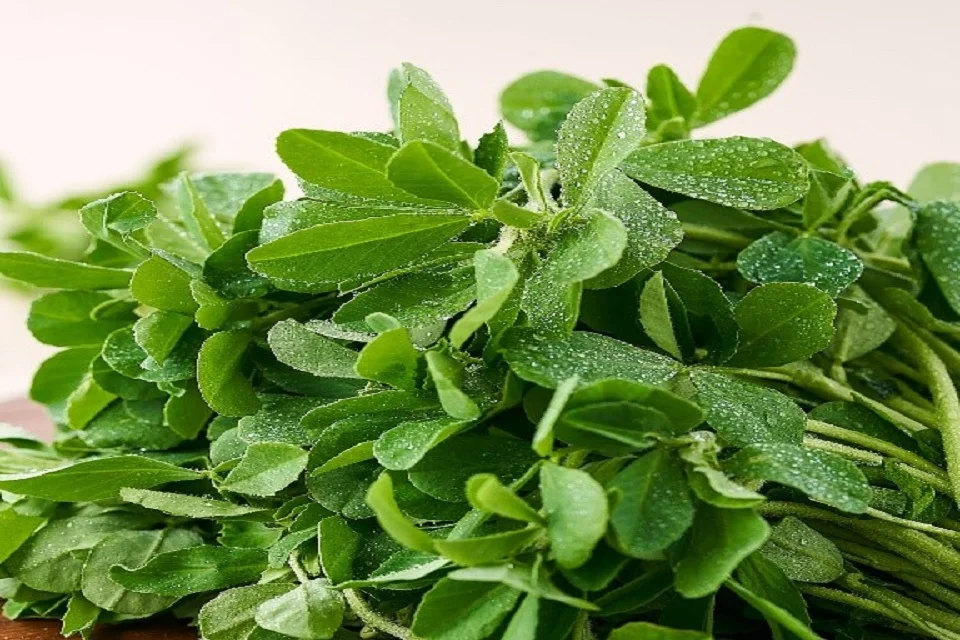




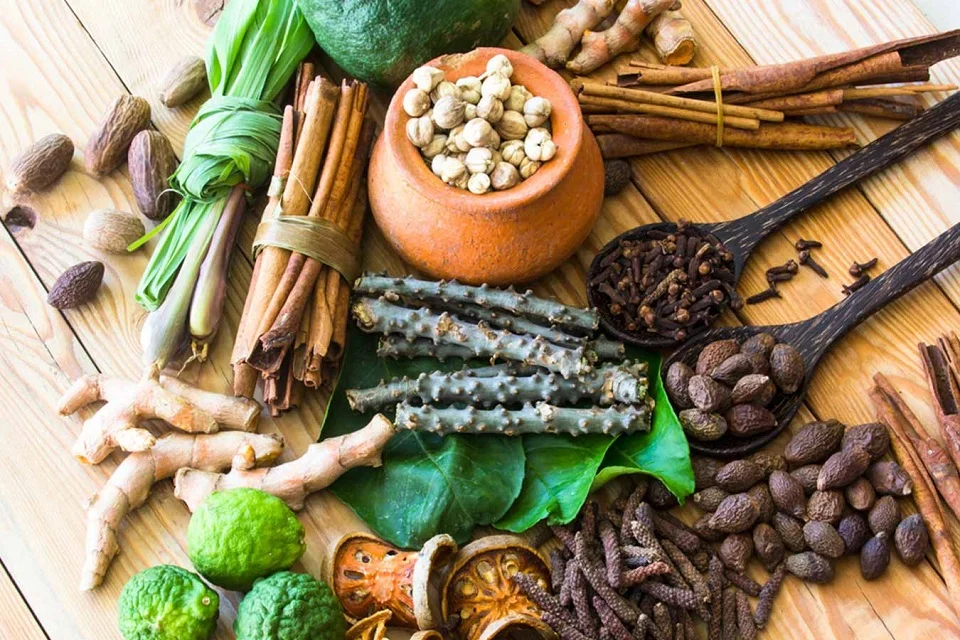

Got Something To Say